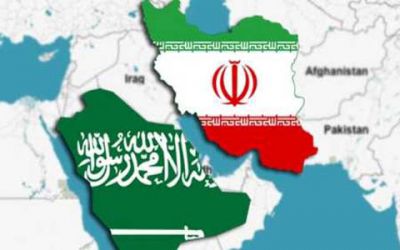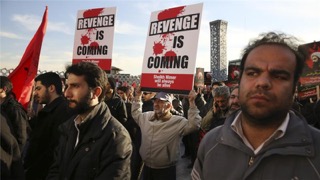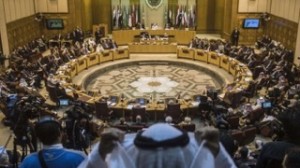
Saudi Arabia and Iran: context analysis and the story of an enmity
External Relations 18 January 2016Tensions between Iran and Saudi Arabia are continuously growing: the block of pilgrimages to Mecca and the start of a commercial war between the two countries are the last moves of a diplomatic fight erupted on Saturday the 2nd of January when Saudi Arabia executed the Shia cleric and political dissident Sheikh Nimr Bakr al–Nimr.

Iranian demonstrators hold anti-Saudi placards in a rally to protest the execution by Saudi Arabia of Sheikh Nimr al-Nimr. Photo credits: timeofisrael.com
Teheran has immediately condemned this hateful action considering it as a pure and simple act of defiance towards its interests. The day after, some tens of demonstrators attacked the Saudi embassy in Teheran and the Iranian Supreme Leader Ali Khamenei threatened that Saudi Arabia will finally face the “Lord’s Retribution”.
On the other hand, Riad immediately replied blocking every sort of diplomatic relation with Iran. All the countries who stand politically close to Saudi Arabia – like Qatar, Bahrein, Kuwait, UAE and Sudan – have suspended or reduced relations and communications with Teheran. This political tsunami contributes to tighten the relations between the two countries which historically have recognized themselves as mutual rivals: Iran and Saudi Arabia are, in facts, already engaged in Syria and Yemen, as opposite sides of the conflicts – in particular, in Yemen, where the Irani government accused Riad of striking the Irani embassy.
The current diplomatic escalation is symptomatic of a famous rivalry, grown especially during 2015. On the one hand, Riad points at Iran saying that the Irani government is fueling the existing conflict between Shias and Sunnis in a wide list of countries; while, on the other hand, Teheran wants to strengthen its alliances network exploiting the new regional context arisen after the nuclear post-agreement. Supernatural power are not necessary to get a clear idea about the lack of wisdom and farsightedness among the two countries – and of course it will soon lead to a destroying conflict.
The killing of Sheikh Nimr Bakr al–Nimr, religious opponent of the al-Saud regime and spokesman of the Shia minority in Arabia, reopened up the Pandora’s box and the never-ending strife between Riad and Teheran. It is possible to look at the Saudi action as it was a clear message of rejection of the reintegration of Iran within the international community, as a consequence of the agreement upon the nuclear energy and its use, signed in July. At the same time, the escalation of these days leads to a substantive exploitation of the Shia/Sunni identity at much higher and dangerous levels in the view of a durable and consistent solution to those crisis – we are clearly talking about Syria and Yemen among the others – which are fueling the region.

Arab League foreign ministers in Cairo expressed their support for Saudi Arabia
Photo credits: bbc.co.uk
During the last years the Gulf powers emerged as even more aggressive and assertive actors in the Middle East. The deterioration in relations between some of these countries and Teheran may generate a creepy escalation that could finally destroy the equilibrium in one of the strategic areas of the globe. Academics and professionals wrote a lot about this change in economics, politics and society: one of the main aspects is related to the transformation of those “rentier states” in systems much more similar to the western ones, based on a more sustainable fiscal policy and taxation.
In order to connect all the dots, we observe how the Saudi action took place at the beginning of a year that it is going to be meant as the “year of reintegration” of Iran in the international context. The signature of the agreement by Teheran and the so-called P5+1 made someone think of the opening of a new era for the Middle East.
Today’s match concluded 1-0 for Saudi Arabia. Foreign ministers of the countries joining the Arab League, gathered in Cairo, issued a statement condemning Irani authorities because, in the view of these countries, they did nothing to avoid the protests and protect the Saudi embassy from the crowd.



